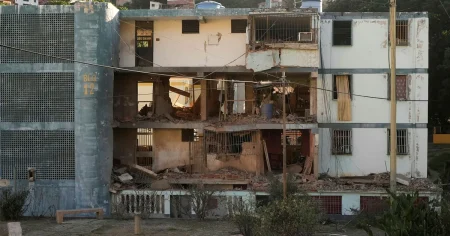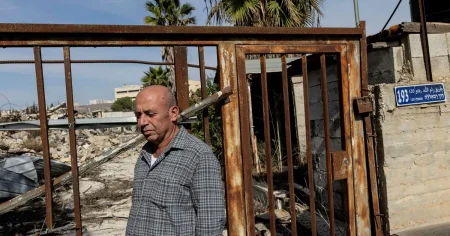The Shifting Sands of Syrian Asylum: A Pause in Decision-Making Amidst Regime Change
The dramatic collapse of the Assad regime in Syria and the subsequent flight of President Bashar al-Assad to Russia have sent ripples through the international community, prompting a reassessment of asylum policies concerning Syrian nationals. Sweden, along with Denmark, Germany, and Austria, has announced a temporary halt in decision-making on Syrian asylum cases. This pause reflects the inherent uncertainty surrounding the rapidly evolving political and security landscape in Syria, making it challenging to assess individual asylum claims accurately. The Swedish Migration Agency emphasizes that this is a temporary measure, implemented to allow for a thorough evaluation of the situation and to gather updated information before resuming normal processing of asylum applications. This cautious approach underscores the importance of informed decision-making in asylum matters and the need to avoid premature judgments based on incomplete information.
The decision to pause asylum processing is not unprecedented. A similar measure was taken in 2021 following the Taliban’s takeover of Afghanistan, highlighting a pattern of responsive policy adjustments in the face of significant geopolitical shifts. The Swedish Migration Agency clarified that such pauses are enacted for limited durations and are lifted once sufficient clarity emerges regarding the political and security dynamics in the affected country. This temporary suspension aims to prevent potentially erroneous decisions based on outdated information and to ensure that asylum determinations reflect the current realities on the ground in Syria.
While the immediate impact of the regime change on refugee flows remains unclear, Sweden is bracing for potential changes. Migration Minister Johan Forssell acknowledges the possibility of a new wave of refugees but emphasizes the country’s preparedness to respond effectively. Forssell highlights the significant changes in Swedish migration policy since the 2015 refugee crisis, including a shift towards temporary residence permits and stricter requirements for family reunification. These adjustments aim to maintain better control over migration flows and to prevent a repeat of the challenges experienced in 2015.
The sudden shift in power in Syria has reignited discussions about the status of Syrian refugees already residing in Sweden. Jimmie Åkesson, leader of the Sweden Democrats party, has called for a reassessment of existing residence permits for Syrians, arguing that the changed circumstances warrant a review of their asylum status. However, Minister Forssell has cautioned against hasty conclusions, emphasizing the need for a comprehensive understanding of the evolving situation before making any policy changes. This measured approach reflects a commitment to avoiding impulsive decisions and prioritizing a thorough evaluation of the implications of the regime change.
The current situation in Syria presents complex legal and humanitarian challenges. The fall of the Assad regime, while potentially signaling a new chapter for the war-torn nation, also introduces a period of uncertainty and potential instability. This volatile environment necessitates a cautious and informed approach to asylum policy, ensuring that decisions are made based on accurate and up-to-date information. The temporary pause in asylum processing allows for this necessary evaluation and reflects a commitment to responsible decision-making in the face of complex geopolitical developments.
The evolving situation in Syria and its potential impact on migration flows underscores the interconnectedness of global events and the need for flexible and responsive migration policies. The Swedish government’s approach, characterized by a temporary pause in asylum processing coupled with a commitment to preparedness and ongoing monitoring, represents a balanced response to this complex and dynamic situation. The coming weeks and months will be crucial in determining the long-term implications of the regime change in Syria and its impact on migration patterns, requiring continued vigilance and adaptability from governments and international organizations alike. The focus remains on navigating this period of uncertainty with a commitment to both humanitarian principles and national interests.














